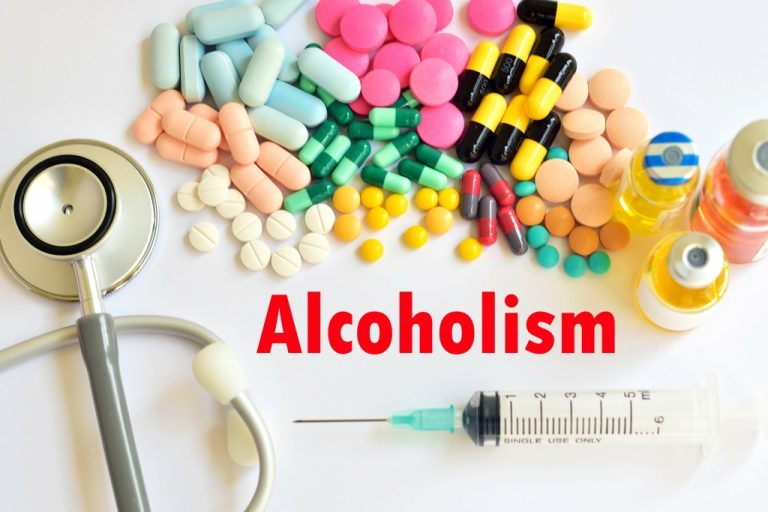Korsakoff Syndrome Symptoms & Treatments
There are strategies that can help a person with ARBI to improve their new learning and memory and cope with the daily frustrations of their impairment. Effects of alcohol on memory include disruption of various memory processes, affecting both formation and recall of information. It is caused by a person regularly drinking too much alcohol, or binge-drinking, over several years. Rehabilitation may be provided by a dementia https://marylanddigest.com/top-5-advantages-of-staying-in-a-sober-living-house/ service, community mental health team or rehabilitation service for people with a brain injury (for example, following an accident or stroke).The availability of these local services may be different across the country. Most alcohol support services are designed to help people stop drinking and stay sober and there may sometimesbe less immediate support available to deal with the dementia-related parts of rehabilitation.
Alcohol and Your Brain: The Latest Scientific Insights
- Emotional prosody deficits may be exacerbated when the affective prosody does not match the semantic content in sentences or when trying to match affective prosody to facial expressions (Uekermann et al., 2005).
- Indeed, elements of this model still can be seen in virtually all models of memory formation.
- Knight and colleagues (1999) observed that 35 percent of trainees in a large pediatric residency program had experienced at least one blackout.
- After the first part of treatment, a person with alcohol-related ‘dementia’ will need support from different kinds of services.
They will also need to take high-dose thiamine (vitamin B1) tablets and eat a healthy, balanced diet, and have counselling or ‘talking therapies’. For a clear diagnosis, the person needs to have these symptoms even when they have stopped drinking and are not suffering from the effects of alcohol withdrawal. The doctor will also need to make sure that these symptoms don’t indicate another type of dementia, such as Alzheimer’s disease or vascular dementia. A person can be diagnosed with alcohol-related ‘dementia’ Top 5 Advantages of Staying in a Sober Living House if they have problems with memory, thinking or reasoning that severely affect their daily life, and are most likely to have been caused by drinking too much alcohol. It can be difficult to get an assessment, as some GPs will insist that the person has stopped drinking for several weeks before they can assess the person’s memory. Some experts think that a person can be assessed for alcohol-related ‘dementia’ while they are still drinking too much, as long as they aren’t intoxicated at the time of the assessment.
Effects on working memory
Longitudinal studies offer the possibility to control for practice, aging, and sex effects when a matched control group is retested at comparable intervals and yield valuable comparisons between abstainers and relapsers. To our knowledge, only cross-sectional studies have been conducted on emotional and social cognition in alcoholic patients. Despite evidence of episodic memory deficits, alcoholics as a group have a tendency to overestimate their memory skills (Le Berre et al., 2016; Le Berre et al., 2010). In particular, they have difficulty in accurately predicting how well they will perform on tasks requiring recognition of newly learned information [feeling-of-knowing, FOK (Hart, 1965)].
Stages of Alcoholic Dementia Symptoms

Most studies have not found that an alcoholic’s drinking history relates significantly to the speed or extent of recovery. Alcoholics with more years of heavy or problem drinking are not more likely to have more lasting impairment than are those with fewer years. This finding is counterintuitive, and the reasons for it are not entirely clear.
Treatment for alcoholic dementia
These disruptions destroy brain cells and cause widespread microscopic bleeding and scar tissue. Researchers have identified several genetic variations that may increase susceptibility to Korsakoff syndrome. Poor nutrition also may raise risk.Most cases of Korsakoff syndrome result from alcohol misuse. Scientists don’t yet know why heavy drinking causes severe thiamine deficiency in some alcoholics, while others may be affected primarily by alcohol’s effects on the liver, stomach, heart, intestines or other body systems.
- There is a range of aids available and their effectiveness depends on what best suits each person.
- For example, Parsons (1987) and coworkers noticed that alcoholics appear to change a strategy (that may be correct) before it has been sufficiently tested or to continue using ineffective approaches even after it is obvious that they are inadequate.
- This article reviews what alcohol-related dementia is, its possible causes, symptoms, treatment, and more.
- People with ARBI live to their best potential when their life is organised and follows a good structure.
- “Specifically, when you’re younger, your brain is going through a lot of changes.
- Regardless of age, recent studies show more frequent blackout experiences are related to an increase in memory lapse and cognitive difficulties even after alcohol misuse is corrected.
One brain chemical system particularly susceptible to even small amounts of alcohol is called glutamate. Among other things, glutamate affects memory and may contribute to what causes some people to temporarily “blackout,” or forget much of what happened during a night of heavy drinking. Alcohol hinders the ability of the brain to transfer information from short-term memory to long-term storage. It is like a delivery truck on a route that gets sidetracked and never makes it to its destination. Coping with alcoholic dementia can be difficult for a person who is experiencing it, as well as for their loved ones. You don’t have to go through this alone—seeking help from healthcare providers, as well as support groups, can help you as you learn how to manage your alcohol use and how to cope with the effects of alcoholic dementia.
Brain areas affected by alcohol
